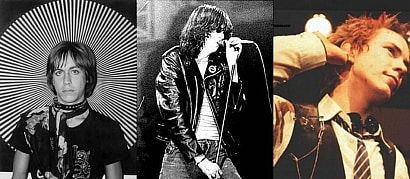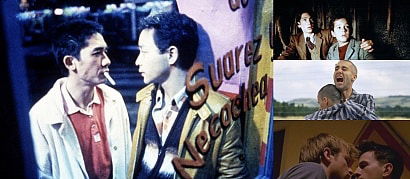Trapped in Tradition
There are many downsides of traditions.
While traditions might be nice in a family setting, they can be disastrous in the business world. If you think about it, the whole idea of a tradition causes us to turn off our brains. It is the easy, lazy thing to do. Just blindly follow the past so you don't have to do the hard work of critical thinking in the present.
Concepts, processes, techniques, and rituals of the past may hold you back in today's ultra-competitive climate. Worse yet, your team may be turning off their minds and failing to bring fresh ideas forward at the time your company needs it the most.
The human rights movement is not inherently at odds with customary law, religious law, and tradition, but with the aspects that violate rights. The task at hand is one of transformation, not rejection.
Unfortunately, “tradition” is indeed often used to justify discrimination and crackdowns on rights and is easily hijacked by nations determined to flout the rights of particular groups and to quash broader social, political, and legal freedoms. In such environments, “tradition” subordinates human rights. It should be the other way around.
Great leaders are advocates for change. While they respect the past, they win by adapting to the present and architecting for the future. They overflow with curiosity and open-mindedness. They love to challenge the status quo. They focus on what's possible.
It's time to deeply question the traditions of the past and focus on reinventing the future. It's time to question. To imagine. To innovate.
While traditions might be nice in a family setting, they can be disastrous in the business world. If you think about it, the whole idea of a tradition causes us to turn off our brains. It is the easy, lazy thing to do. Just blindly follow the past so you don't have to do the hard work of critical thinking in the present.
Concepts, processes, techniques, and rituals of the past may hold you back in today's ultra-competitive climate. Worse yet, your team may be turning off their minds and failing to bring fresh ideas forward at the time your company needs it the most.
The human rights movement is not inherently at odds with customary law, religious law, and tradition, but with the aspects that violate rights. The task at hand is one of transformation, not rejection.
Unfortunately, “tradition” is indeed often used to justify discrimination and crackdowns on rights and is easily hijacked by nations determined to flout the rights of particular groups and to quash broader social, political, and legal freedoms. In such environments, “tradition” subordinates human rights. It should be the other way around.
Great leaders are advocates for change. While they respect the past, they win by adapting to the present and architecting for the future. They overflow with curiosity and open-mindedness. They love to challenge the status quo. They focus on what's possible.
It's time to deeply question the traditions of the past and focus on reinventing the future. It's time to question. To imagine. To innovate.
Added to
People who voted for this also voted for
Kyrgyz Women
I Went!
Faces So Beautiful It Hurts - Croatia
Music: Greatest Punk Singers
Nepo Baby?
completed Games
Tv Shows
Rosie Tupper
Best Gay Movies of 1997
Beautiful French Faces - Camille Cerf
666GreatestFictionalVillains in abc order (2022)
books per country
My favorite celebrities
Top 34 Movies of 2021
Sacratissimo Cuore di Gesù
More lists from James OK
Sorbet albeit not quite Sherbet
Ostentatious Male Peacocks
Decadent desserts : good for the mood
Comtesse Monique
Hundred Dragons Elevator : Bailong Elevator
The Chiba Urban Monorail in Japan
Abstract art : how much abstract?
 Login
Login









































